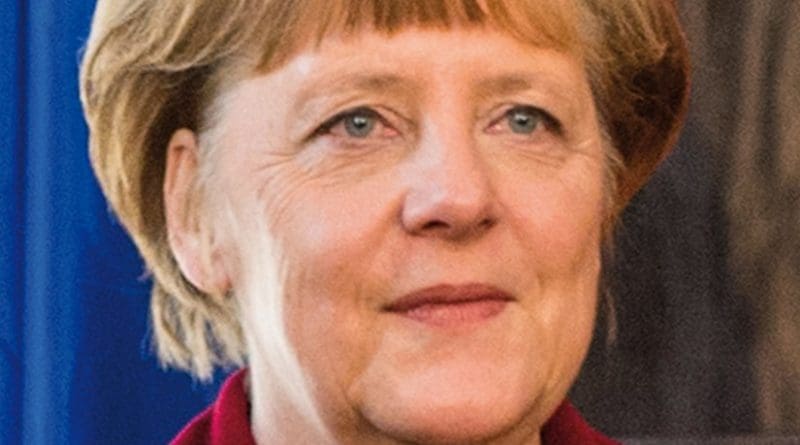Merkel Says Progress Made In Greece-Macedonia ‘Name’ Talks
By Sinisa Jakov Marusic
Macedonia and Greece are closer than at any time in the past decade to a compromise in their ‘name’ dispute, German Chancellor Angela Merkel said on Wednesday, hosting a visit by Macedonian Prime Minister Zoran Zaev.
German Chancellor Angela Merkel said she was pleased by the recent progress in the talks between Macedonia and Greece over Macedonia’s name, which – if they end successfully – will expedite Macedonia’s ambitions to join NATO and EU.
“I am very pleased and relieved that … there is movement in the talks,” Merkel said at a joint press conference in Berlin with Macedonian Prime Minister Zoran Zaev.
“In the last ten years, the solution has not been as close as it is now. It would be wonderful if the remaining difficulties can be bridged,” she added.
Merkel remarked that for Germany to take sides regarding this difficult issue would not be of much help.
She said it would take the form of a “diplomatic art” for compromise to be reached, adding that this will not be possible through press conferences but only if both sides work diligently “behind closed doors”.
Asked to specify when Macedonia might expect an invitation to join the EU and NATO, Merkel said it was not a matter of time but of the speed at which the country, as well as the entire Western Balkans, fulfilled certain reforms.
It was Zaev’s first official visit to Berlin since his centre-left government took power last May after a prolonged and turbulent political crisis.
“Our wish is to give Europe a new kind of Balkans,” Zaev said, thanking his host for Germany’s support in strengthening political and economic ties with and between the Balkan countries.
Zaev’s visit to Berlin, which focused on the “name” dispute and other issues, has been in the focus of the Greek media as well.
One day before meeting Zaev, Merkel’s office confirmed that she had held a telephone conversation with Greek Prime Minister Alexis Tsipras, and that, among other things, the two had exchanged opinions on the efforts to overcome the dispute between Skopje and Athens.
The dispute centres on Greece’s insistence that use of the word Macedonia implies a territorial claim to the northern Greek province of the same name.
Athens insists that a new name must be found that makes a clear distinction between the Greek province and the country.
As a result of the unresolved dispute, in 2008, Greece blocked Macedonia’s NATO membership. It has also blocked the start of Macedonia’s EU accession talks, despite several positive annual reports from the European Commission on the country’s progress.


It all started with the uneducated goat herder writing poetry about his village. Georgi Pulevski claimed that he was a direct descendent of Alexander the Great. I tend to think he was a descendent of Alexander the Goat. Like Ljubčo Georgievski he had an about face and claimed to be Bulgarian. In fact he stated he regretted not being able to execute the unification of Bulgaria and Ottoman Macedonia. Antiquization was replaced by a pan Slavic united Bulgaria. Georgi Pulevski went from being a goat herder to a stonemason to a founder of Macedonism to a Bulgaphile upon his death. Goergievski and Pulevski are similar in this regard. They both renounced their new found religion and came to their senses. With the death of the uneducated stonemason the Bulgarians of Vardar Macedonia were cured until the unimaginable happened – TITO. A half caste Croat/Slovene redefines the Bulgarians of Vardar Banovina as Macedonians. The Diaspora left their little villages with a suitcase and a story. Tito’s story. Just when it couldn’t get any worse Todov and his deluded intellectuals addicted to Pulevski poetry brainwash their population. FYROM is born. Gruevski is the second coming of Pulevski.
The ethnic Bulgarian will always be the ethnic Bulgarian. The ethnic Greek will always be an ethnic Greek. Language defines both of us. The Antiquization story is flawed. This why FYROM today has failed. Let’s not nation build on an uneducated stonemason. Read his work as a literary piece rather than a historical piece. Be proud of your Bulgarian ethnicity and don’t allow historical distortions. You are what you speak and the FYROMIAN Slavs speak Bulgarian.